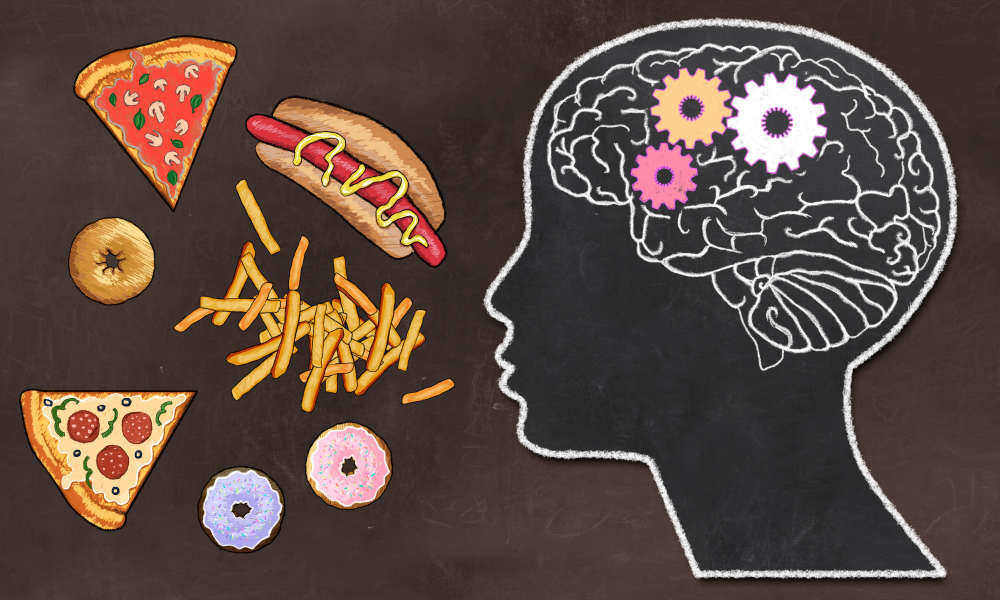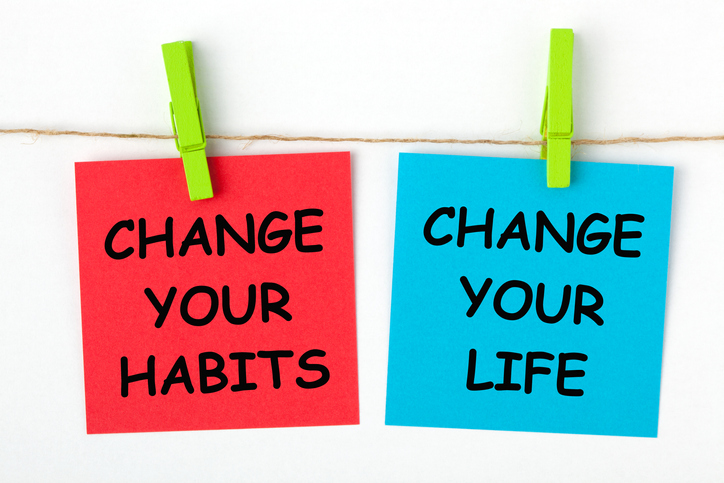Binge eating disorder is a common eating disorder where you frequently eat large amounts of food while feeling powerless to stop and extremely distressed during or after eating. You may eat to the point of discomfort, then be plagued by feelings of guilt, shame, or depression afterwards, beat yourself up for your lack of self-control, or worry about what compulsive eating will do to your body.
Behavioral symptoms of binge eating and compulsive overeating
- Inability to stop eating or control what you’re eating
- Rapidly eating large amounts of food
- Eating even when you’re full
- Hiding or stockpiling food to eat later in secret
- Eating normally around others, but gorging when you’re alone
- Eating continuously throughout the day, with no planned mealtimes
Emotional symptoms
- Feeling stress or tension that is only relieved by eating
- Embarrassment over how much you’re eating
- Feeling numb while bingeing—like you’re not really there or you’re on auto-pilot.
- Never feeling satisfied, no matter how much you eat
- Feeling guilty, disgusted, or depressed after overeating
- Desperation to control weight and eating habits
PART 1 Develop healthier relationship with food
Watch this 8min video to learn more about the Binge eating cycle
To do this, you have to break the binge eating cycle by:
Avoiding temptation. You’re much more likely to overeat if you have junk food, desserts, and unhealthy snacks in the house. Remove the temptation by clearing your fridge and cupboards of your favorite binge foods.
Listening to your body. Learn to distinguish between physical and emotional hunger. If you ate recently and don’t have a rumbling stomach, you’re probably not really hungry. Give the craving time to pass.
Eating regularly. Don’t wait until you’re starving. This only leads to overeating! Stick to scheduled mealtimes, as skipping meals often leads to binge eating later in the day.
Not avoiding fat. Contrary to what you might think, dietary fat can actually help keep you from overeating and gaining weight. Try to incorporate healthy fat at each meal to keep you feeling satisfied and full.
Fighting boredom. Instead of snacking when you’re bored, distract yourself. Take a walk, call a friend, read, or take up a hobby such as painting or gardening.
Focusing on what you’re eating. How often have you binged in an almost trance-like state, not even enjoying what you’re consuming? Instead of eating mindlessly, be a mindful eater. Slow down and savor the textures and flavors. Not only will you eat less, you’ll enjoy it more.
PART 2 Identify your triggers with a food and mood diary
Watch this 8min video to learn more about the moods impacting Binge and how to train the mind…
I feel good – It is the chemical that is released when we do something that makes us feel good. It is also the neurotransmitter that is responsible for hunger and sensation cues. When we overeat, dopamine works to reward us by releasing feelings of pleasure and euphoria when overeating.
One of the most common reasons for binge eating is an attempt to manage unpleasant emotions such as stress, depression, loneliness, fear, and anxiety. When you have a bad day, it can seem like food is your only friend. Binge eating can temporarily make feelings such as stress, sadness, anxiety, depression, and boredom evaporate into thin air. But the relief is very fleeting.
One of the best ways to identify the patterns behind your binge eating is to keep track with a food and mood diary. Every time you overeat or feel compelled to reach for your version of comfort food Kryptonite, take a moment to figure out what triggered the urge. If you backtrack, you’ll usually find an upsetting event that kicked off the binge.
Write it all down in your food and mood diary: what you ate (or wanted to eat), what happened to upset you, how you felt before you ate, what you felt as you were eating, and how you felt afterward. Over time, you’ll see a pattern emerge.
PART 3 Learn to tolerate the feelings that trigger your binge eating, taking back control and supporting with healthy habits
Watch this 8min video to minimize binge eating and replace with healthy routines!
The next time you feel the urge to binge, instead of giving in, take a moment to stop and investigate what’s going on inside.
1. Identify the emotion you’re feeling. Do your best to name what you’re feeling. Is it anxiety? Shame? Hopelessness? Anger? Loneliness? Fear? Emptiness?
2. Accept the experience you’re having. Avoidance and resistance only make negative emotions stronger. Instead, try to accept what you’re feeling without judging it or yourself.
3. Dig deeper. Explore what’s going on. Where do you feel the emotion in your body? What kinds of thoughts are going through your head?
4. Distance yourself. Realize that you are NOT your feelings. Emotions are passing events, like clouds moving across the sky. They don’t define who you are.
Then take back the control by fighting the urge and delaying it, talking to someone and sharing your feelings, distracting yourself with your other favorite activity. You might not be 100% successful the first time, but you will eventually so you need to keep trying if it’s important for you to change your reactions to the craving.
Once you have learnt to take back control or know that you are slowly and steadily managing the same successfully, complement it with changes in your health routine such as
1. Regular Exercise
2. Good quality sleep. Refer to my previous article on The Importance of Good Quality Sleep
3. Investing in social meet-ups and building relationships
4. Managing stress through meditation, travel, spending time in pursuing your hobbies etc.
The best advice for the last, if you realize you are Binge Eating, seek help!










